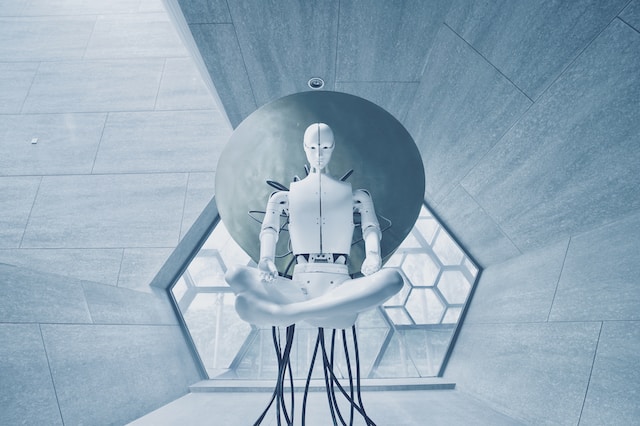What does the Bible say about robots?

In our rapidly evolving world, where technology and artificial intelligence are advancing at an unprecedented pace, a curious question arises: What does the Bible say about robots? This might seem like an anachronistic inquiry, as robots and AI were not within the realm of possibility when the Bible was written. However, the Bible, a timeless source of wisdom for many, can offer insights into how we might perceive and interact with these technological advancements. This article delves into this intriguing topic, exploring biblical perspectives that could guide our understanding of robots, including the peculiar question of humans marrying robots.
What does the Bible say about artificial intelligence?
The Biblical Perspective on Creation and Innovation
Made in God’s Image: Creators and Innovators
Genesis 1:27: “God created man in his own image. In God’s image, he created him; male and female he created them.”
Implication:
- Humans, made in the image of God, are inherently creators and innovators, much like how God created the universe.
- Inventing robots and AI can be seen as an extension of this divine attribute of creativity.
The Wisdom in Creation
Proverbs 3:19: “The Lord by wisdom founded the earth. By understanding, he established the heavens.”
Application:
- Just as God used wisdom and understanding in creation, we are called to employ wisdom in our creations, including robots, ensuring they are made for beneficial purposes.
Stewardship and Ethical Use of Technology
Responsible Dominion Over Creations
Genesis 1:28: “God blessed them. God said to them, ‘Be fruitful, multiply, fill the earth, and subdue it. Have dominion over the fish of the sea, over the birds of the sky, and over every living thing that moves on the earth.'”
Interpretation:
- This verse often speaks to stewardship.
- As we create and interact with robots, we must do so responsibly, ensuring that our technological advancements benefit the earth and its inhabitants.
The Principle of Love and Respect
Matthew 22:39: “You shall love your neighbor as yourself.”
Reflection:
- While robots are not our neighbors, the principle of love and respect extends to how we interact with all of creation, including our technological creations.
- This ensures we maintain ethical standards and humane treatment in all aspects of life.
What Does the Bible Say About Marrying a Robot?
The Biblical View of Marriage
Genesis 2:24: “Therefore a man will leave his father and his mother, and will join with his wife, and they will be one flesh.”
Context:
- The Bible presents marriage as a sacred union between humans, a man and a woman.
- The idea of marrying a robot does not align with this biblical view, as it is a relationship intended for human companionship and unity.
The Role of Relationships
Ecclesiastes 4:9-10: “Two are better than one, because they have a good reward for their labor. For if they fall, the one will lift up his fellow; but woe to him who is alone when he falls, and doesn’t have another to lift him up.”
Insight:
- Relationships, as depicted in the Bible, are about mutual support, growth, and companionship, qualities that are inherently human and may not be genuinely replicated by a robot.
Embracing Technology with Wisdom and Ethics
As we navigate the uncharted waters of advanced technology and AI, including the concept of robots, the Bible, though not directly addressing these modern inventions, provides timeless principles that can guide us. We are reminded to embrace our role as creators with responsibility, to use our innovations for the betterment of the world, and to uphold ethical and moral standards in all our endeavors. The idea of marrying robots, while a testament to human innovation, strays from the biblical understanding of marriage and relationships, which are deeply rooted in human connection and companionship.
While the Bible does not explicitly mention robots, its teachings on creation, stewardship, and relationships offer a framework through which we can view these technological advancements. As we continue to innovate and explore the possibilities of AI and robotics, let us do so with wisdom, responsibility, and a deep respect for the ethical and moral values that guide us. Let’s embrace technology not just for the sake of advancement, but for the betterment of humanity and the world we inhabit.















